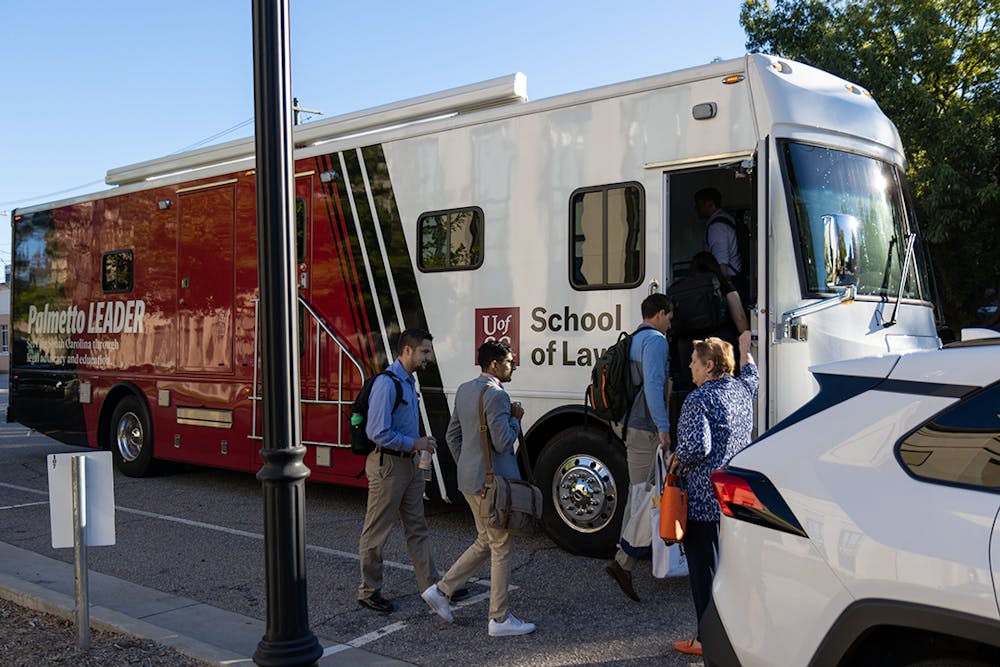For over a decade, USC Law School Pro Bono Director Pamela Robinson had a sticky note on her keyboard. Written on it was the idea for University of South Carolina’s Pro Bono Program: A bus with offices that drives around offering legal services to people without access to them.
Thanks to a $1.1 million gift from the Konduros Fisherman Fund, Robinson’s sticky note is now a reality. The Palmetto LEADER is a technologically equipped custom bus with offices and a waiting area for clients. The bus partners with nonprofits to do simple services, such as wills and healthcare powers of attorney, for South Carolinians living in counties with low access to legal services.
Both lawyers and USC law students work on the Palmetto LEADER. Law students are assigned to help attorneys process each client and assess their needs. The law students are trained to sit in on the intake of each client and fill in the information they give into a template.
"We have some papers that they fill out before they come to the appointment, where we can look through and see who they want, you know, this property to go to or how many kids they have, all that kind of stuff so that the students, we as law students can sort of just manipulate the template will so that it fits whatever the client wants to say," Christian Compton, a USC law student, said.
One of the main partners of the USC Law School Pro Bono Program is the South Carolina BAR Pro Bono Program. Betsy Goodale, director of the South Carolina Bar Pro Bono Program, has been on every expedition with the bus thus far. Goodale thinks her most memorable experience with The Palmetto LEADER was when the bus went to McColl, SC. The bus was parked outside a new medical facility a resident had donated funds for.
“I think that was a great picture of rural South Carolina, going to tiny McColl, which is up near the North Carolina border, and there's just not much out there, and a lot of poverty. So I really felt like the bus, and then this brand new medical facility were just two bright lights there in that rural community, working together to serve those people,” Goodale said.
The bus may also be used to aid with disaster situations by filling out Federal Emergency Management Agency (FEMA) applications.
“We have the training material, we could take the bus because we have our own generator, Wi-Fi. We could park literally on the side of the road and set up,” Robinson said. “You have to think about those things ahead of time, you can't wait until the hurricane is two days out, you got to think about a year ahead or six months ahead.”
Robinson has great hopes for the future of the bus. She believes it may eventually be able to offer more services than wills and powers of attorney.
“I, long term, have great hope that we'll be able to go out and do an alternative spring break, and maybe do income tax assistance in a low income area that has no tax assistance, because we know those people are not getting all the credits that they deserve,” Robinson said.
Currently, the Palmetto LEADER has a waiting list of law students who want to go out on the bus and help out.
“I've been trying to tell all of my friends, like, you need to go ride the bus at least once, because like I said, I mean, I feel like as a law student it's sort of the best time to come to realize that there are people who don't have any access to the legal system,” Compton said.

